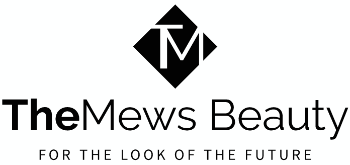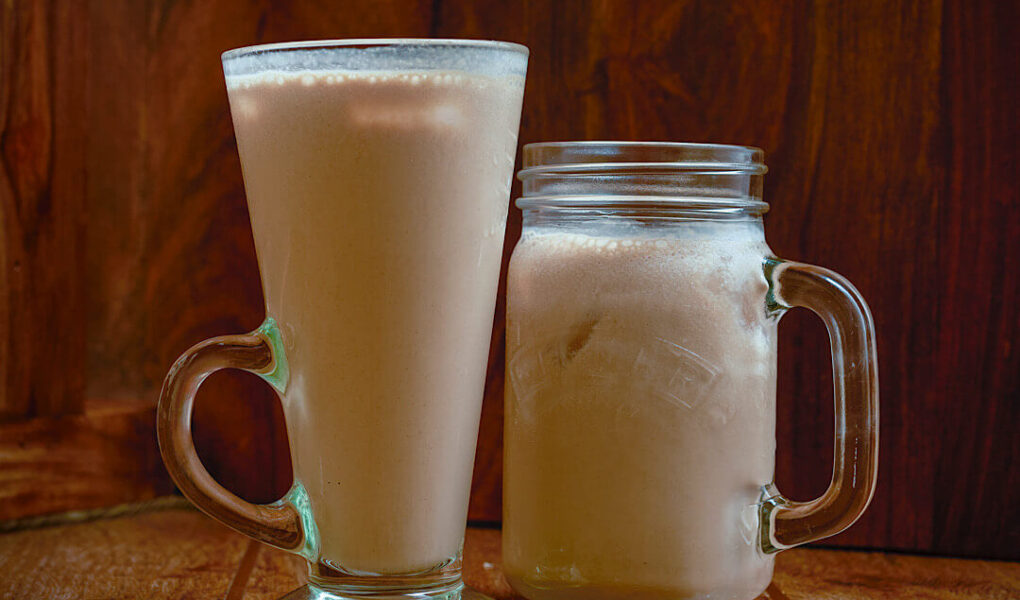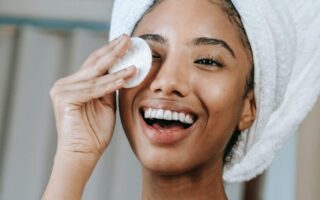Just as beauty isn’t skin deep, the appearance of your skin depends on more than just the creams and makeup you put on the outside. When it comes to healthy, youthful-looking skin, you need to dig a lot deeper than your cosmetic box.
Collagen and skincare
Skin and collagen are a double act. They go together like Ant and Dec. Take away one and the other is in BIG trouble. That’s why collagen is causing such a buzz on the beauty scene, making it an everyday skincare essential.
Table of Contents
What is Collagen and why do we need it?
Collagen, often referred to as ‘the scaffolding the body’, is the body’s most plentiful protein. It is made up of three amino acids: glycine, proline, and hydroxyproline.
There are several types of collagen but most of it is found in our skin, bones, teeth, joints, tendons and connective tissue (type 1 collagen) and soft cartilage (type 2 collagen).
Why is collagen important for skin health?
Type 1 collagen is the main player when it comes to skin health, making up 75% of our skin’s support structure. As well as its structural role, collagen is responsible for giving our skin its strength, as stated by the collagen and skin health enthusiast at Let’s Talk Collagen. As such it plays a huge role in your skin’s ageing process. When we are young our natural collagen levels are bountiful, which helps keep our skin firm, plump and smooth.
Unfortunately, when we hit our mid-twenties we start to lose 1% of our natural collagen per year. This is when those tell-tale signs of ageing may first start to appear like fine lines and wrinkles. As collagen breaks down our skin also loses its elasticity, strength and moisture. The older we get the less we collagen produce – women can lose up to 30% of their collagen supply in the first five years of menopause! This is bad news for our skin and everything else that is made from collagen such as our hair, nails, teeth and bones.
The science behind collagen and skin health
Many studies show the importance of collagen for skin health and anti-ageing. One randomised placebo controlled study took women aged 35 to 55 years of age. Each received either 2.5 or 5.0 grams of collagen peptides or a placebo once daily for eight weeks. The results of the study showed that the women who were supplementing with collagen had improved skin elasticity and skin moisture.
How can you boost your body’s collagen production?
Given the connection between collagen and youthful glowing skin, it’s not surprising people are looking for ways to top up their body’s collagen levels.
The most effective way to boost your body’s natural collagen supply is by adding it to your diet.
There are two types of nutritional collagen, bovine (from cattle) and marine (from fish). Don’t worry, we’re not suggesting you eat a bowl of bone broth for dinner – though, like fish skin, it is a very good source of collagen. There are much easier and tastier ways to get your daily dose of collagen.
Collagen Supplements
Given the myriad benefits of collagen, everybody is jumping on the supplement bandwagon. But with so many different varieties out there – pills, powders, peptides, gels and drinks – it can be very confusing knowing which to choose. Don’t worry, we’re here to make the collagen conundrum easier for you.
When supplementing your diet with collagen, Enzymatic Hydrolysed Marine Collagen is the way to go. When we consume collagen it needs to be broken down into amino acids, before it can be absorbed into the bloodstream.
The hydrolysation process does the work for you, breaking down the collagen into small molecules so it’s easier for your body to absorb. Compared to bovine collagen, marine collagen is absorbed 1.5 times more efficiently. Apart from having greater ‘bioavailability marine collagen is more eco-friendly and sustainable than other collagen sources.
Collagen Coffee: The best way to add marine collagen to your diet
Collagen Coffee is a simple and effective way to get a good amount of this youth-promoting protein into your diet whilst forgoing the disagreeable taste and odour of many collagen supplements.
Many supplements don’t even contain enough collagen to have any visible effect on your skin.
We’ve found a Collagen Coffee that contains up to 400mg of collagen, which is more than you’ll find in most supplements. This means you’ll be receiving a meaningful dose of collagen with every cup!
Sugar, collagen’s enemy
Studies show that excessive sugar intake can damage your skin, so don’t go adding it to your collagen coffee! When we eat foods that are high in added sugars our blood glucose levels increase causing a chemical reaction in the body that damages collagen. This process, called glycation, makes the collagen becomes stiff and misshapen.
As a result, your skin loses its elasticity and signs of ageing start to appear. Glycation can also contribute to inflammation within the body, which in turn accelerates the ageing process.
To get the best effect of collagen, it’s important to avoid foods sugary, carb-laden foods such as white pasta, bread, cakes and biscuits.
Collagen Boosters
Adding specific nutrients to your diet can also improve your body’s collagen activity. Studies show that combining certain nutrients with hydrolysed marine collagen can provide an extra boost to your collagen production.
Nutrients that are proven to help to increase the body’s collagen supply are vitamins A, C and E. Vitamin C (also known as Ascorbic acid) is a powerful anti-oxidant essential for collagen synthesis.
Foods that contain these vitamins and nutrients and aid collagen synthesis and production include: berries, red peppers, nuts, seeds and green leafy vegetables. When taken at the same time as collagen these nutrients have been shown to improve skin hydration, elasticity and density, and to reduce wrinkles and pores.
Combining marine collagen with a low-carb diet rich in the above nutrients and will help boost your collagen production and fast-track your journey towards radiant, healthier, younger-looking skin.
Conclusion
I’ve come to the conclusion that maybe it’s time for me to try something new: marine collagen. More specifically, Senka Perfect Whip Collagen In (deep clean, anti-ageing).
Marine collagen is derived from fish skin instead of the bovine source used in most collagen products (Senka also makes a beef collagen version). It is an excellent source of amino acids such as glycine and proline, both of which are essential for the production of elastin and collagen in the skin. Studies have shown that marine collagen is easily absorbed by the body compared to other types of dietary supplements on the market today.




